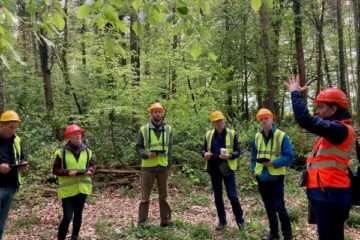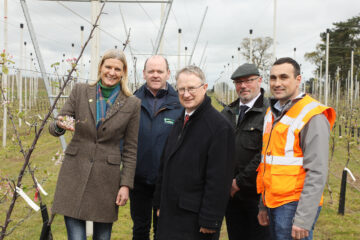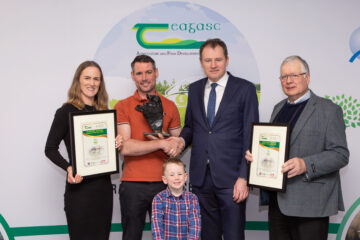Reducing methane emissions from cattle and sheep is one of the biggest challenges currently facing the agricultural sector. Researchers at Teagasc are investigating whether the addition of native seaweeds and seaweed supplementation to the ruminant diet can reduce methane emissions.
Seaweed is a renewable, natural resource found in all of the Earth’s coastal climatic zones. It is naturally rich in protein (as much as 47 % of the dry weight) as well as other bioactive compounds, such as polyphenols, phlorotannins, saponins, alkaloids, fibre and peptides. Seasolutions is a multinational, EU-Canadian collaborative project, led by Dr Maria Hayes at Teagasc Food Research Centre, Ashtown, Dublin. The project investigates whether seaweeds that are abundantly found around the Irish coast can be used as feed additive ingredients for sheep, beef cattle and dairy cows.
Dr Maria Hayes explains, “initially, seaweeds are characterised for bioactives such as polyphenols and phlorotannins and peptides. Based on the level of actives, seaweeds are then selected for screening in vitro using different gas models including the RUSITEC (artificial rumen) model at Teagasc Grange. The best seaweeds at reducing methane emissions in vitro are then selected for use in animal trials in sheep, beef cattle and dairy cows.”
“To date we have completed one sheep trial and further sheep and dairy trials are ongoing. Other work is focused on the effect of seaweeds and extracts on the rumen microbiota, which ultimately generate the methane. We are also developing feed formats including actives and looking at the economic potential and life cycle analysis of developed products containing methane-reducing seaweeds and seaweed ingredients”.
Part of the Seasolutions project involves feeding trials at the Teagasc Animal and Grassland Innovation Centres at Grange, Co. Meath and Athenry, Co. Galway. Researchers David Kenny, Sinéad Waters, Stuart Kirwan and Emily Roskam use ingredients supplied by Teagasc Ashtown in feed formulations and assess the reduction in methane emissions in beef cattle and sheep.
Professor Sinéad Waters comments, “we examined the effects of supplementation of mature ewes with seaweeds and seaweed extracts in Teagasc Athenry for their ability to reduce enteric methane emissions, while at the same time ensuring there were no negative effects on the digestion of feed or animal productivity. As part of this trial we are also testing meat samples for residues to ensure consumer acceptance and food safety. The best candidates at reducing methane emissions arising from the sheep study will be further investigated in a large beef cattle trial in Grange in Spring 2022”.
Professor David Kenny added: “Our ultimate objective is to identify specific bioactives within seaweed that could be harnessed as potent and reliable methane-suppressing dietary supplements. These need to be tested in a holistic fashion prior to potentially seeking legislative approval for their inclusion in animal feed. A critical aspect of this project is to test such supplements with the context of a pasture-based production system, which underpins the Irish beef and dairy industry, as opposed to relying on data generated from higher input, grain-based international studies.”
Source: Teagasc



